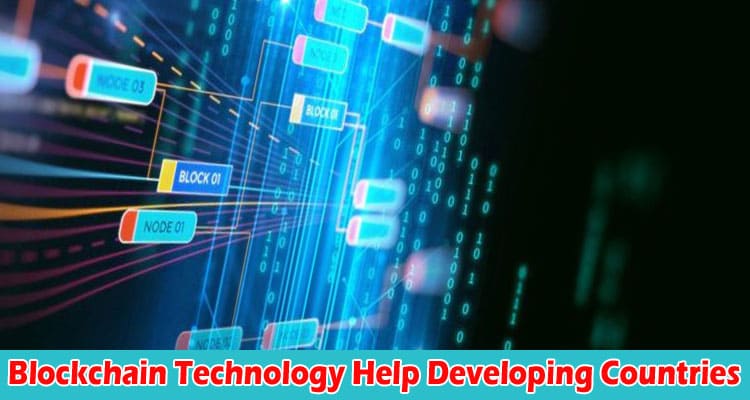
BLOCKCHAIN TECHNOLOGY HELP DEVELOPING COUNTRIES: The world is big and there are many countries that are still developing or considered underdeveloped.
In some of these areas, the standard of living is much lower than in more developed countries. There are numerous reasons for this, but a major one is the lack of infrastructure and resources.
Blockchain technology has the potential to change that. By providing a secure way to track and share information, blockchain can help improve transparency and accountability while enabling better communication between different parties.
What is blockchain technology and how does it work?
Blockchain technology is a revolutionary web3 system designed to revolutionize the way digital information is managed and recorded. It works by creating an ever-growing chain of encrypted records that are highly secure and spread across multiple locations. This makes the blockchain resistant to change or manipulation and provides a high level of security for the transactions that rely on it.
At its core, blockchain is simply an accounting system that uses cryptography to connect and store blocks of data.
How can blockchain technology help developing countries?
Blockchain technology (and Web3 in general) has the potential to revolutionize the way we govern and do business around the world.
Especially for developing countries, this technology can open up unimagined opportunities. India, Indonesia and other countries are adopting and using this new technology for its ability to cut red tape and build trust among citizens.
For example, crypto transactions on the blockchain could allow individuals in developing countries to transfer money abroad much cheaper and faster, lifting them out of poverty.
Benefits of Blockchain Technology for Developing Countries
Blockchain technology has the potential to bring a variety of benefits to developing countries around the world. The Web3 economy, enabled by blockchain-based solutions, offers economic opportunities that offer innovative alternatives to inefficient, centralized systems.
With Web3, people can access financial services that were previously unavailable even with traditional banking infrastructure, and get financial improvements easily without credit checks.
Because Web3 gives individuals direct access to cryptocurrency — a decentralized form of digital money — that they can use without third-party approval.
Challenges to be faced to successfully implement blockchain technology in developing countries
Blockchain technology, Web3, and crypto are no longer buzzwords but great solutions to the challenges that developing countries face in this digital age. Due to their decentralized nature, immutable ledger system, and data security, these technologies can be powerful tools to drive economic and social development in such countries.
Conclusion
Blockchain technology has the potential to revolutionize Web3 and have a profoundly positive impact on developing countries.
From enabling cheaper referrals and faster access to health care to creating economic opportunities not otherwise available, blockchain technology can help bring new hope and opportunity to millions of people around the world.
In addition, it offers innovative solutions to governments to address modern challenges related to rapid globalization and digitization.
It is clear that blockchain-based systems can be used by developing countries to create better economic and social conditions for everyone. This technology has the potential to revolutionize Web3 and give millions of people in developing countries a chance at a better life.
You Read This Article On Examviews.com where You can Get All the Latest Updates, News, and Reviews.
